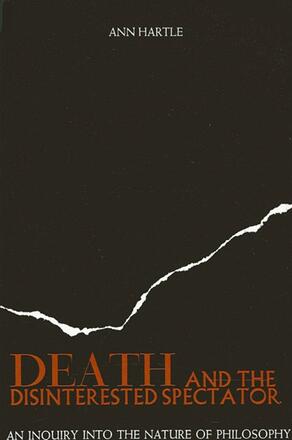
Death and the Disinterested Spectator
An Inquiry into the Nature of Philosophy
Alternative formats available from:
Description
Death and the Disinterested Spectator examines the nature of philosophy in light of philosophy's claim to be a preparation for death. Does philosophy have any real power, or is it merely idle talk? The background against which this question is explored is a re-interpretation of Plato's Phaedo, Augustine's Confessions, and Descartes' Discourse on Method.
Ann Hartle is Associate Professor of Philosophy at Emory University.
Reviews
"This book is a serious attempt to grapple with an absolutely fundamental question: the nature of philosophy in its relation to theory, practice, and death. The method for dealing with this question is also interesting: to discuss the larger question concretely by examining a philosophical dialogue, a theological and philosophical confession, and a philosophical treatise. " — Carl G. Vaught